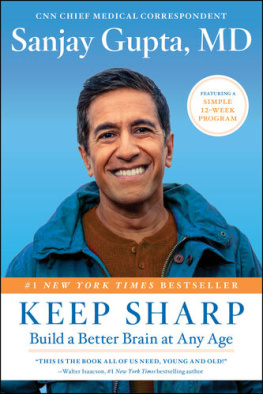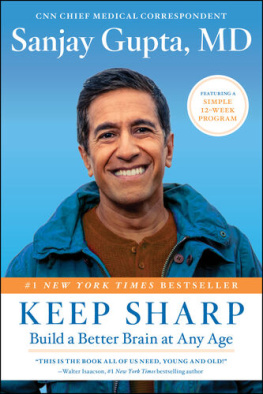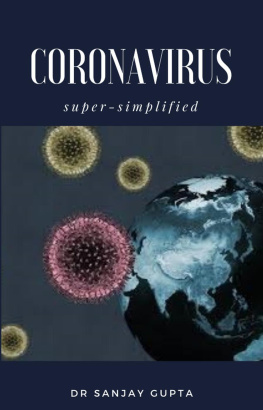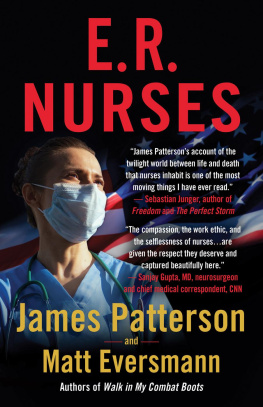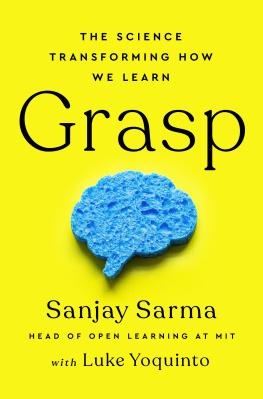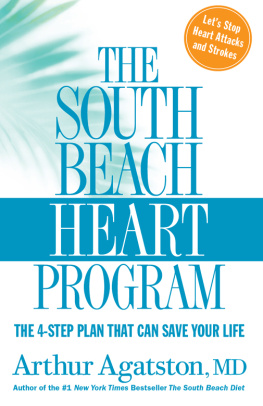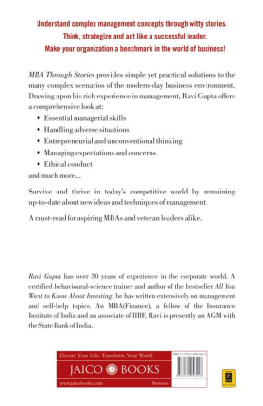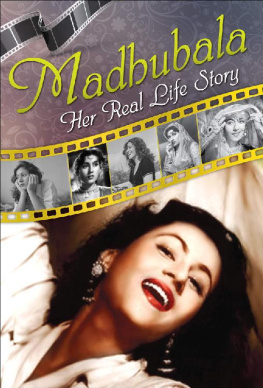AS A DOCTOR, reporter, husband, and father, I know it is the families of my patients that are often forgotten and overlooked. Over the last two years, we directly entered the lives of the characters in this book. We took valuable time, and asked for them to recount sometimes painful stories. We called on weekends, at night, and during holidays just to get another fact nailed down and to get the story straight. The children, parents, spouses, and other relatives were universally patient with us, and for that I thank you. I hope you think this book honors your loved one, and all those who cheat death.
I would also like to thank my colleague and good friend, Caleb Hellerman. This book would not have been possible without him and his passion. Not only is he a terrific and thoughtful writer, but he is as diligent a researcher as one can find. Caleb is also serving as the executive producer of Cheating Death, the documentary.
SANJAY GUPTA, MD, is a practicing neurosurgeon and associate chief of neurosurgery at Grady Memorial Hospital and assistant professor at Emory University Hospital in Atlanta. He is a columnist for Time magazine and chief medical correspondent at CNN, where he plays an integral role in the networks medical coverage, including daily reports, the show House Call with Dr. Sanjay Gupta, and coverage of breaking medical news. He is featured in a weekly podcast on health issues called Paging Dr. Gupta and writes health news stories for CNN.com and CNNHealth.com. He is also a contributor to 60 Minutes and the Evening News with Katie Couric on CBS.
Before joining CNN, Gupta was a neurosurgeon at the University of Tennessees Semmes-Murphy clinic, and before that, at the University of Michigan Medical Center. He became partner of the Great Lakes Brain and Spine Institute in 2000 and in 1997 he was chosen as a White House Fellow, one of only fifteen fellows appointed. He served as special adviser to former first lady Hillary Rodham Clinton.
Gupta has been published in a variety of scientific journals and has received numerous accolades. He received the health communication achievement award from the American Medical Association in 2009 and his health reports swept all three health and medical awards in 2006the first year the National Headliner Awards honored such journalism in a dedicated category. Also in 2006, he earned his first Emmy, a Peabody, and the DuPont award.
In 2004, the Atlanta Press Club named Gupta Journalist of the Year. He has won the Humanitarian Award from the National Press Photographers Association, a GOLD Award from the National Health Care Communicators, and the International Health and Medical Media award known as the Freddie. His first book, Chasing Life, became a New York Times best seller and was also the subject of a one-hour documentary of the same name on CNN.
A board-certified neurosurgeon, Gupta is a member of several organizations, including the American Association of Neurological Surgeons, Congress of Neurological Surgeons, and the Council of Foreign Relations. He serves as a diplomat of the American Board of Neurosurgery as a Fellow in the American College of Surgery and is a certified medical investigator. Gupta is also a board member of the Lance Armstrong LiveStrong Foundation.
I dont want to achieve immortality through my work.
I want to achieve it through not dying.
Woody Allen
I M GOING TO let you in on a little secret: When the heart stops beating, its not the end. In fact, you might say that your troubles have only just begun. As it turns out, life and death is not a black-and-white issue. There is a gray zonea faint no-mans-land where you are neither truly dead nor actually alive. In order to control it, in order to cheat death, we have to first better understand it.
T HE LAST THING Zeyad Barazanji remembers is the silence. Thirty seconds earlier, he had been watching election returns on CNN, his head turned up from the treadmill, where he was huffing and puffing through his daily afternoon workout. His attention had drifted from the television to the sound of his own pounding feet, the whir of the machine, and his rasping breath as he strained to match his usual pace. That Tuesday, it felt like he was running uphill, and Barazanji cut it short, turning off the machine after only twenty minutes of jogging. A retired literature professor, Barazanji was in a bustling gym near his home in the Spuyten Duyvil section of the Bronx, surrounded by the banter of his neighbors and the clanking of weights. But then, nothing. Silence.
He doesnt remember what happened next, only what people told him later. One woman will never forget it. One minute she was working out, and the next there was a blur in the corner of her eye. The wiry, older man with the white undershirt and headband crumpled in a heap at the foot of the adjacent treadmill. At least a dozen people saw him go down. Two called 911 from their cell phones. An athletic trainer, the gyms manager, Juan Echevarria, grabbed the automatic defibrillator off the wall and rushed to Barazanjis side.
Elbowing the crowd aside, Echevarria kneeled and placed the defibrillators electrodes on Barazanjis chest. Upon getting a signal from the device, he sent a shock into the chest of the unconscious man. Two successive bursts of electricity200 joules apieceshook the crumpled body. Each jolt ran through the beaded sweat on Barazanjis chest, through the breastbone, and into his still heart, shocking the muscle into a contraction. Another contraction followed, and then another. As the trainer held his breath, Barazanjis heart caught a beat of its own. The heartbeat was back. The line between life and death had shifted just enough.
The professor groaned and remained senseless, but his heart was once again sending weak pulses of blood through his sixty-three-year-old arteries. About four minutes later, a team of emergency medical technicians raced across the basketball court, stretcher in hand, to Barazanjis side. Two minutes later, a breathing tube was down his throat, he was on the stretcher, and the paramedics were sweeping toward the exit.
W ERE USED TO thinking about dying in stark terms: dead or alive. Youre here and then youre gone. In our imagination, this is how the moment of death plays out: The villain or hero or soldier gasping last words, stretching out a hand until his eyes roll back in his head and we know its all over. Or the cancer patient surrounded by family. A light flickers behind her eyes and then goes out. Youve read it in a thousand stories, seen it in a thousand movies, a hundred episodes of ER. The alarm sounds. The monitor flatlines. Time of death, 2:15 a.m.
It only takes a few minutes for life to slip away. Without a heartbeat, circulation slows to a halt. Blood no longer flows to your brain or any other organ. It takes just a couple of minutes before everything goes dim, and youre blissfully unaware of the catastrophe unfolding inside your body. Starved of blood, the first organ to suffer is the brain, which in happier times consumes about 20 percent of all oxygen the body takes in, though it constitutes just 2 percent of our body mass. After ten seconds without oxygen, the brains function slows. Without oxygen or signals from the brain, other organs break down as well. Diaphragm muscles no longer contract and release to bring in air. The kidneys stop filtering blood. At the same time, an elaborate chain of chemical reactions triggers a breakdown in cells throughout the body.
This is the process of dying. Whether because of a car accident, a blockage in an artery, or a tumor somewhere in your body, it is generally understood that when the heart stops beating, life has ended. I have seen this play out more times than I care to remember. The first time, I was a third-year medical student at the University of Michigan. The patient was not much older than I was. I remember the call coming over the emergency radio: Twenty-three-year-old unrestrained driver in an MVA [motor vehicle accident], found with the windshield starred and steering wheel bent. Even then, I knew those details were important; it takes a lot of force to bend a steering wheel with your chest or smash a windshield with your head. I remember the trauma surgeons, neurosurgeons and orthopedic surgeons descending on this young man. They attempted to replace blood, stop bleeding and relieve pressure in his brain. It was a whirlwind of activity until his heart stopped. And then everything else stopped, too. Everyone knew that was the end. After all, thats what we were taught in medical school and throughout our training. But what if it doesnt have to be that way? What if there were a way to give that twenty-three-year-old man and millions like him just a little more time, to shift the line between life and death? Ever since I watched that young man die, I have pondered that very question: can we move the line?


